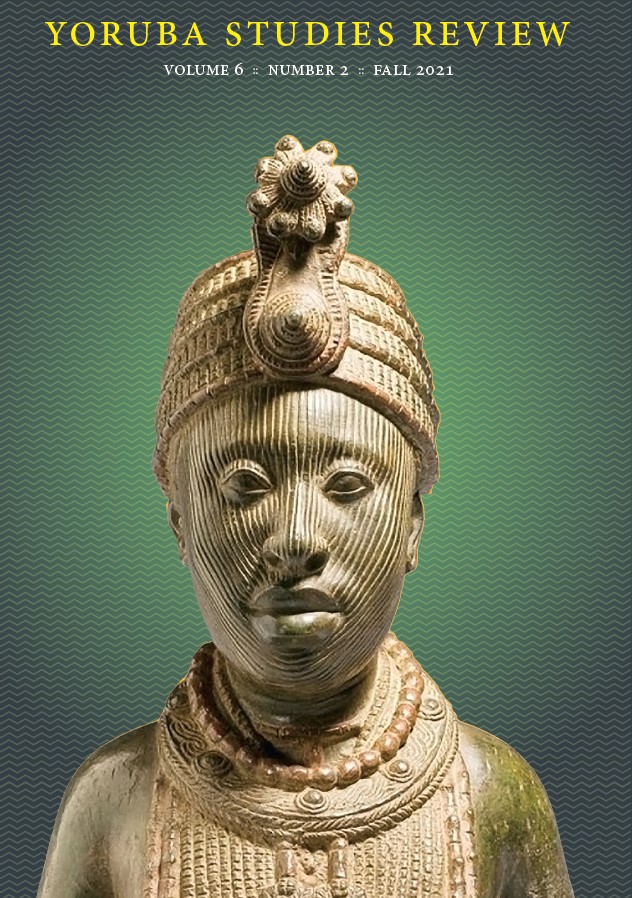Abstract
Until recent times, the vast part of the history and traditions of the Yorùbá people existed in Oral Traditions (OT) and Other Oral Traditions (OOT). On the one hand, OT consists mainly of eyewitness and orally transmitted accounts of events, developments, and traditions. On the other hand, OOT which consists of creative oral arts that form the basis of their norms and cultural practices that lays credence to history, is by the turn of time running into a nebula of obscurity because of modern developments in space and technology. This study discusses the challenges researchers in the collection of these traditions could face, using the Ìjemọ̀ community in Abeokuta as a case study. It is elementary that the composition of the postcolonial Nigerian state is a fusion of multiple nationalities, people of different cultural and historical backgrounds. For various reasons related to political contestation and reproduction of historical traditions, these entities preserved their animated past from the historical abyss. Notes adumbrated in this study consist of accounts that take the history of Abeokuta beyond the Sodeke era in the third decade 210 Osunlakin and Falola of the nineteenth century. These notes came from various oral bases collected for three months in the city of Abeokuta. Further study related to the historical study of the city could pick on the limitations of the current research to reconstruct a comprehensive account of the people.

This work is licensed under a Creative Commons Attribution-NonCommercial 4.0 International License.
